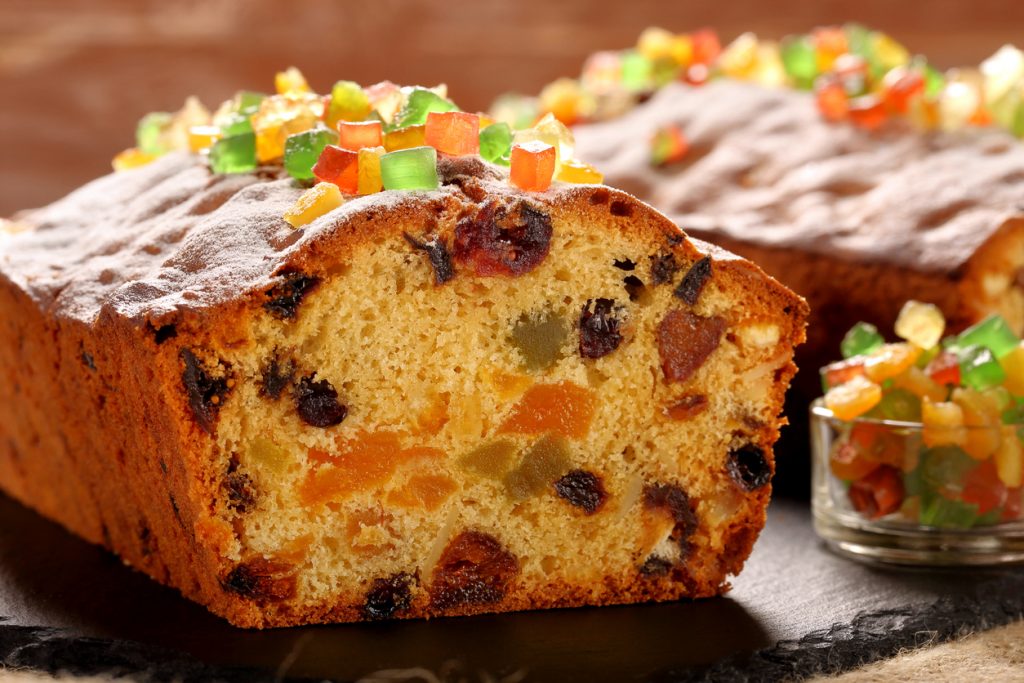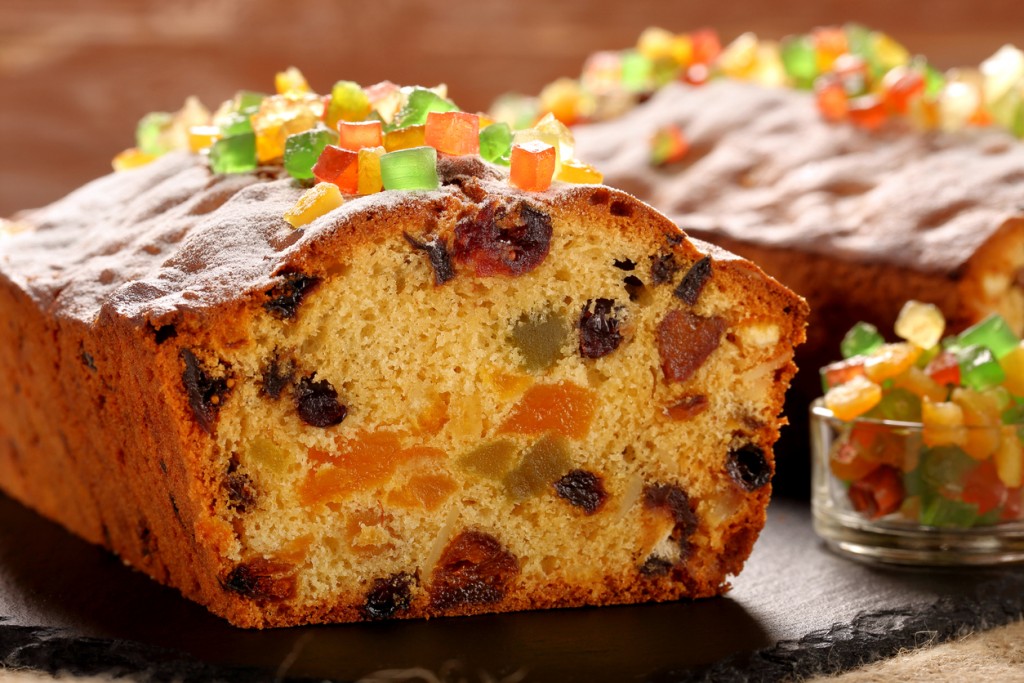It’s December, which means the holiday season, which means Bing Crosby on the radio, festive decorations in store windows, and jokes about fruitcake, the Christmas treat that’s simultaneously ubiquitous and that nobody seems to like. Here’s a slice of trivia about the much-maligned yuletide treat.
The standard fruitcake, as it is today: a hard-as-a-rock, bread-like thing loaded with spices, nuts, lots of rum, and dried fruits that are brightly-colored and sickeningly sweet because they’ve been preserved indefinitely but an incomprehensible amount of sugar. The concept of a cake loaded with dried fruits and nuts dates is even older than an actual fruitcake seems today: The recipe goes back to both ancient Egypt and the Roman Empire. They were even carried during the Crusades as a food source. Why? Because they lasted a long time without spoiling. in the centuries before refrigeration, food preservation was harder, and subjecting food to sugar and/or alcohol extended its shelf life.
The modern fruitcake hasn’t changed too much since the 16th century. Sugar became extremely plentiful and thus extremely cheap to Europeans in the 16th century, because it could suddenly be grown and produced in mass quantities in the colonies of America. Sugar could preserve fruits (and even enhance their color), and more sugar preserved them longer. Alcohol, particularly sugarcane-derived rum, also worked as a preservative. The result: a cake that didn’t spoil for years because it was chock full of sugar-preserved fruits that itself was preserved with alcohol.
By the 19th century, the making, gifting, and consumption of fruitcake was a Christmas tradition in both Europe and the United States because it was a great way to use up preserved fruits from the harvest of the previous summer or fall. And because they could last so long, many people would eat a fruitcake a year after it was given to them for “good luck.” A year later, they were still safe to eat. Hard as a rock, sure, but safe.

Care for Some Fruitcake?








